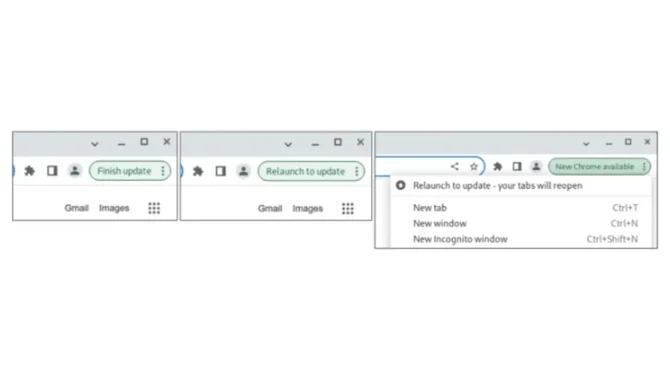Weekly Chrome Security: Impact on Browsers & Users

Google Chrome shall receive weekly updates concerning its security.
The users of Google Chrome shall be provided with security updates on a weekly cadence. The renowned search giant has published an elucidative article detailing the rationale behind its transition towards a more rapid update cycle.
Instances of security vulnerabilities within browsers and operating systems are frequently reported by individuals, security laboratories, or even competing browser developers. These entities share their discoveries with the vendor, that is, the company responsible for crafting the browser, with the intention of aiding in the rectification of these vulnerabilities. Consequently, this collective effort serves to safeguard the well-being of myriad users. This practice is widely prevalent across the industry. For instance, when security experts identify glitches within Google and Apple’s systems, these companies promptly release updates imbued with remedies for the identified risks. Nevertheless, the distinguishing factor lies in the celerity exhibited by these companies in resolving the detected security loopholes.
It is worth noting that Chrome is founded upon the open-source project known as Chromium. Upon the reportage of a security flaw by a diligent researcher to Google’s Chromium project, the matter is diligently scrutinized by contributors and experts who meticulously review modifications made to the underlying source code. This comprehensive analysis encompasses details concerning the rectification of these security vulnerabilities. Subsequently, these remedial codes are disseminated to Chrome’s Canary and Beta channels, where they undergo exhaustive testing to assess their stability, compatibility, and overall performance. Only upon the completion of these evaluations are the fixes made accessible to users through the stable channel.
Traditionally, Google dispenses milestone updates (e.g., version updates from 115 to 116) to Chrome’s stable channel every four weeks. In the interim between the present and the imminent milestone update, Chrome receives a security update (inclusive of emergency updates) containing remedies for any identified vulnerabilities within the browser. These security updates are distributed bi-weekly, a practice implemented since the release of Chrome 77 in 2020.
The company based in Mountain View accentuates that the inherent openness of the Chromium project facilitates third-party identification of bugs and the subsequent provision of remedial measures. However, this openness also brings forth a considerable conundrum. Malicious entities, meticulously monitoring the situation, could become cognizant of nascent vulnerabilities and subsequently contrive exploits aimed at the unguarded iterations of the browser. These are not zero-day threats, as Google is already cognizant of the flaws; they are referred to as n-day exploits due to their acknowledged vulnerability status and the availability of a remedy. Because the issuance of security patches necessitates a few weeks, numerous users might remain susceptible to these n-day exploits. Google’s intention is to mitigate the potential consequences of these threats.

Apple has recently initiated the testing of its Rapid Security Response system, aimed at swiftly addressing security vulnerabilities without the necessity of awaiting a monthly system update for iOS, iPadOS, and macOS. This endeavor enables users to expeditiously safeguard their devices from zero-day threats. Paralleling this endeavor, Google aims to expedite the security update cycle for Chrome.
Weekly Security Updates Envisaged for Google Chrome Google affirms its commitment to deliver weekly security updates for Chrome, deviating from its bi-weekly patch distribution. This transition aims to narrow the window available for hackers to exploit vulnerabilities, ensuring the safeguarding of users from threats with increased swiftness. The weekly security patches for Chrome shall encompass solutions for all critical and highly severe vulnerabilities identified within the preceding browser iteration. This strategic maneuver may additionally contribute to curtailing unforeseen updates, including emergency patches. The shift towards weekly security updates is poised to commence with the launch of Chrome 116, slated for release to the stable channel on the 15th of August.
This paradigm shift could potentially impart positive implications for other browsers based on Chromium, including Microsoft Edge, Brave, Opera, and Vivaldi. Nonetheless, Google underscores that the realization of such implications rests entirely upon the security update cadence observed by these browsers.
Novel Update Notification Banner for Google Chrome Google’s proclamation conveys that the company is currently testing a novel notification banner tailored for Chrome updates. This banner shall prompt the browser user’s attention through alerts such as “Complete Update,” “Relaunch for Update,” and “New Chrome Available.” While the accompanying screenshot may lack clarity, this is precisely what was presented within Google’s blog. This innovative notification banner is currently undergoing experimental deployment, reaching 1% of the user base.
Stay Updated about the latest technological developments and reviews by following TechTalk, and connect with us on Twitter, Facebook, Google News, and Instagram. For our newest video content, subscribe to our YouTube channel.
Read More: Pixel 8 Pro: Unveiling Storage Options




